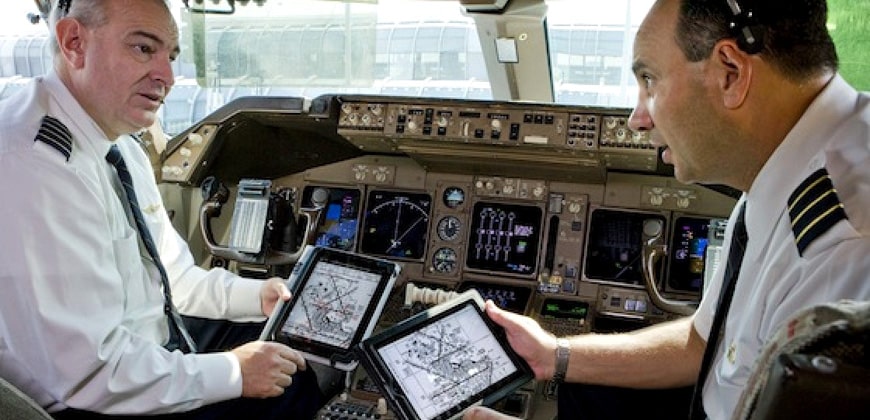FAA Fix to Remove Interference on Airplane Display Units
The Federal Aviation Administration is pushing to replace certain older airplane cockpit instruments manufactured by Honeywell International Inc., claiming that they may be susceptible to Wi-Fi interference.
The request comes as U.S. regulators finalize recommendations for easing restrictions on in-flight use of personal electronic devices.
In a proposed directive released earlier this month, the FAA said Wi-Fi systems may interfere with the Honeywell phase 3 display units aboard 157 Boeing airplanes in use by various U.S. airlines. These display units are critical for flight safety, providing crewmembers with information such as airspeed, altitude, heading, and pitch and roll.
According to the FAA, the issue was discovered two years ago during testing to certify a Wi-Fi system for use on Boeing 737s.
“This testing determined that certain Honeywell phase 3 display units exhibited flickering and blanking when subjected to radio frequency emissions in Wi-Fi frequency bands at radiated power levels below those that the displays are required to tolerate for certification of a Wi-Fi installation,” the FAA explained in its proposed directive. In some cases during testing, display units went blank for as long as six minutes.
Though the FAA seemed previously content to make the change optional, as pointed out by Honeywell Aerospace Chief Executive Tim Mahoney in an interview with Reuters, agency officials have now made the decision to propose a mandatory replacement because “the unsafe condition described previously is likely to exist or develop in other products of the same type design.”
If not corrected, says the agency, the unexpected loss of information during a critical phase of flight, such as an approach or takeoff, could result in a temporary loss of airplane control and even a crash. U.S. costs for the upgrades are estimated at $1.6 billion, but could ultimately be higher if the new rules are adopted internationally. The Boeing 737 is widely considered to be the world’s most popular passenger jet, with over 10,000 orders placed globally since 1967.
The FAA will accept public comments on the proposed rule until Nov. 8.
Article: ITEM Media / Aliza Becker
Editor: M. Danmole’
Image: MAC Rumors





